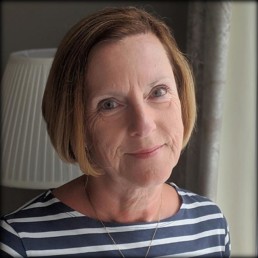
Written by Dr Jill Berry
Thirty years teaching across six different schools in the UK, state and independent, and was a head for the last ten. Has since completed a doctorate and written a book.
Since I finished headship in 2010, I’ve spent a fair amount of time working with aspiring and serving leaders at all levels, supporting and challenging them to step up, to be the best leaders they can be and to fulfil their personal and professional ambitions. It’s been a hugely satisfying and energising part of this ‘post-career’ phase of my life.
I was involved in and supportive of #WomenEd from the very beginning, and as initiatives like #BAMEd, #LGBTEd and #DisabilityEd have come on-stream, and as our awareness of the crucial importance of diversity, equity and inclusion has grown, I’ve been committed to supporting diverse educators, and this has involved my learning more – reading more, watching and listening more, in an attempt to raise my awareness of the perspectives and experiences of those whose lives may be quite different from my own. I’m committed to being an ally, and to encouraging all educators to be allies – and to exhorting all those with leadership responsibility to use any influence they have to empower others, especially those from under-represented groups.
We need strong leaders at all levels – Middle Leaders, Senior Leaders, Heads, Executive Heads – whether you’re leading a specific team, a school or a group of schools. And we need a diverse and inclusive workforce which reflects the communities we serve, and the world we live in, so there are role-models and high profile examples of what our pupils can achieve, and so that we make the most of the strengths and the range of talents of absolutely everyone.
So in terms of coaching, mentoring, supporting and developing leaders – whatever their background, their identity and their lived experience, these are three things I think are especially important.
- Leading is about getting the best from others, and to do that we need to ensure we can see the best in them, and that they see it themselves. Strong leaders can spot potential in those who don’t yet believe it themselves, so that’s my first point. Can you help those you lead to give themselves credit for what they have achieved and, crucially, what they could achieve in the future? Find the bright spots, and ensure they don’t undervalue themselves, or their potential. Show them you value what they are now, and what they are capable of becoming.
- Secondly, but clearly closely related to the first point, this is about building the most positive, mutually respectful and trusting relationships, and communicating. Really listening, being receptive, showing empathy, and trying very hard to understand each other’s point of view. To borrow Nancy Kline’s words: “seek to understand” rather than “seeking to convince”. When you’re working with others, focus on building bridges and not walls.
- And thirdly, finally, never lose a strong sense of hope and a sense of the possible. It’s ten years old, now, but back in the early days of my headship I read a book called ‘The Art of Possibility: Transforming Professional and Personal Life’ by Benjamin and Rosamund Zander, and I did FIND it transformative. We need to see what’s possible, for ourselves and for others, and to help them to see it, and to believe it too. We can be constrained by our fears, our anxiety about facing failure, or disappointment, our aversion to risk. If you are coaching, mentoring and developing diverse leaders, you need to have a clear sense of, and commitment to, what is possible. I recently supported a woman who was applying for an Assistant Principal role in her own school. She almost didn’t apply, and when I asked her why, she said, “I don’t like to fail.” No one likes to fail, but if we aren’t prepared to risk failure we won’t achieve success. What made a difference to her was her 13 year old son saying to her, “But, mum if you don’t apply, you HAVE failed…” And she applied. And it was a really rigorous, robust, challenging process, and she got the job.
So if you’re supporting diverse leaders, remember:
- Find the bright spots – and help them to see them too
- Connect and communicate
- Have hope and see what’s possible.
You can read more blogs by Jill here: https://jillberry102.blog/2021/06/12/coaching-and-mentoring-diverse-leaders/
You can watch Jill’s input at the #DiverseEd event here: https://youtu.be/wnanDncf6Xc

